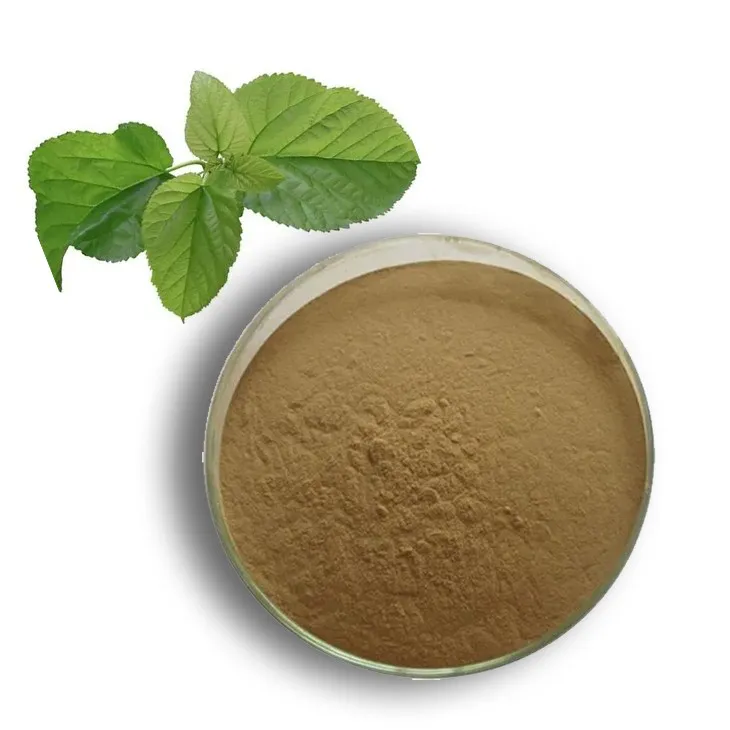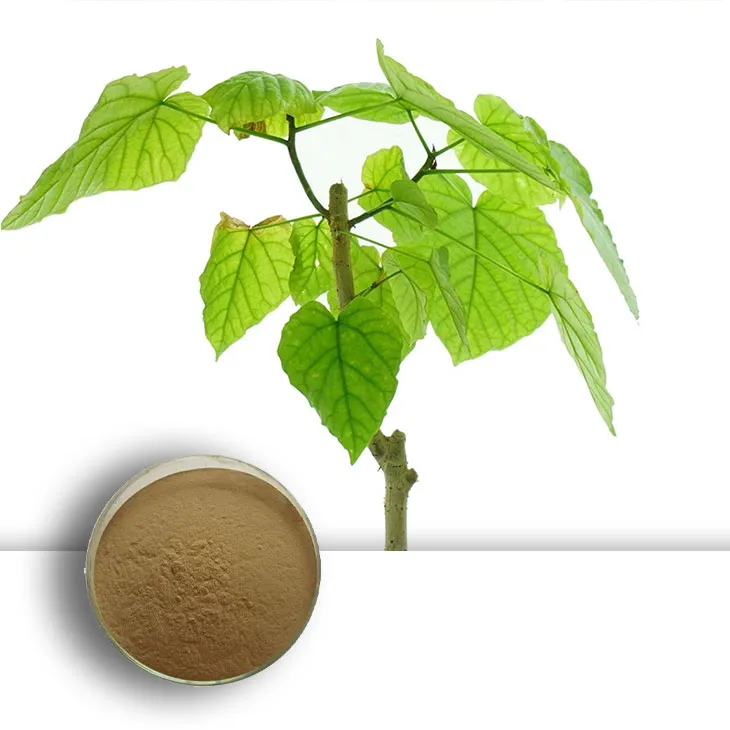- 0086-571-85302990
- sales@greenskybio.com
Does mulberry leaf extract have benefits for diabetes? Are these all safe and applicable for diabetic patients?
2024-11-11

1. Introduction
Diabetes has become a global health concern, with a continuously increasing prevalence. Conventional treatments for diabetes mainly focus on blood glucose control through medications, diet, and lifestyle modifications. However, there is growing interest in exploring natural products that may offer additional benefits. Mulberry leaf Extract has emerged as a potential candidate in this regard. This article aims to comprehensively review the benefits of Mulberry leaf Extract for diabetes and evaluate its safety for diabetic patients.

2. Composition of Mulberry leaf Extract
Mulberry leaves are rich in various bioactive compounds. Flavonoids, such as rutin and Quercetin, are among the major components. These flavonoids have antioxidant properties, which can help combat oxidative stress often associated with diabetes. Another important group of compounds is alkaloids, including 1 - deoxynojirimycin (DNJ). DNJ has been shown to inhibit α - glucosidase activity, which is crucial for carbohydrate digestion and glucose absorption.

3. Potential Benefits for Diabetes
3.1. Glucose - lowering effect
One of the most significant potential benefits of mulberry leaf extract for diabetes is its ability to lower blood glucose levels. As mentioned earlier, the DNJ in mulberry leaf extract inhibits α - glucosidase. By inhibiting this enzyme, the breakdown and absorption of complex carbohydrates are slowed down, resulting in a more gradual increase in blood glucose after a meal. This can be especially beneficial for type 2 diabetic patients who often have problems with post - meal blood glucose spikes.
In addition, some studies have suggested that mulberry leaf extract may also enhance insulin sensitivity. Insulin resistance is a key factor in the development of type 2 diabetes. By improving insulin sensitivity, the body can more effectively utilize insulin to regulate blood glucose levels. However, the exact mechanisms underlying this effect are still not fully understood and require further research.
3.2. Antioxidant and anti - inflammatory effects
Diabetes is associated with increased oxidative stress and chronic inflammation. The flavonoids in mulberry leaf extract act as antioxidants, scavenging free radicals and reducing oxidative damage to cells. This can help protect pancreatic beta - cells, which are responsible for insulin production. If these cells are damaged by oxidative stress, insulin secretion may be impaired, leading to hyperglycemia.
Moreover, the anti - inflammatory properties of mulberry leaf extract can also play a role in diabetes management. Chronic inflammation is involved in the development of insulin resistance and diabetic complications such as neuropathy and nephropathy. By reducing inflammation, mulberry leaf extract may potentially slow down the progression of these complications.

4. Safety Considerations for Diabetic Patients
4.1. General safety
Mulberry leaf extract is generally considered safe when consumed in moderate amounts. In traditional medicine, mulberry leaves have been used for a long time without significant reports of severe adverse effects. However, like any supplement, individual responses may vary.
Some people may experience mild side effects such as gastrointestinal discomfort, including nausea, diarrhea, or abdominal pain. These symptoms are usually transient and may subside as the body adjusts to the supplement. It is important to note that if these symptoms persist or are severe, medical attention should be sought.
4.2. Interaction with medications
Diabetic patients often take medications to control their blood glucose levels. There is a concern about potential interactions between mulberry leaf extract and these medications. For example, since mulberry leaf extract can lower blood glucose, when combined with hypoglycemic drugs such as sulfonylureas or metformin, there may be an increased risk of hypoglycemia (low blood glucose). Therefore, patients who are taking diabetes medications should consult their healthcare providers before starting to use mulberry leaf extract.
Furthermore, mulberry leaf extract may also interact with other medications, such as those metabolized by the liver. The flavonoids and alkaloids in the extract may affect the activity of drug - metabolizing enzymes, potentially altering the effectiveness or safety of these medications. Again, this emphasizes the importance of medical consultation.
5. Dosage and Administration
The appropriate dosage of mulberry leaf extract for diabetic patients is still not well - defined. Different studies have used varying dosages, and the optimal dosage may depend on factors such as the patient's age, weight, diabetes type, and severity.
Some commercial mulberry leaf extract products are available in different forms, such as capsules, tablets, or powders. When using these products, it is essential to follow the manufacturer's instructions carefully. However, it should be noted that these instructions may not always be based on comprehensive clinical trials, especially for diabetes - specific applications.
Starting with a low dosage and gradually increasing it while monitoring blood glucose levels and any potential side effects may be a prudent approach. This allows for individual adjustment based on the patient's response.
6. Conclusion
Mulberry leaf extract shows potential benefits for diabetes, including blood glucose - lowering, antioxidant, and anti - inflammatory effects. However, while it is generally considered safe, there are still safety considerations, especially regarding potential interactions with medications and individual variability in response.
For diabetic patients interested in using mulberry leaf extract, it is crucial to consult with their healthcare providers first. Healthcare providers can take into account the patient's overall health status, current medications, and individual needs to make an informed decision about whether and how to incorporate mulberry leaf extract into the diabetes management plan. Further research is also needed to better understand the long - term effects and optimal use of mulberry leaf extract in diabetes care.
FAQ:
What are the potential benefits of mulberry leaf extract for diabetes?
Some studies suggest that mulberry leaf extract may help regulate blood sugar levels. It may contain components that can improve insulin sensitivity, which is crucial for diabetes management. Additionally, it might have antioxidant properties that can reduce oxidative stress associated with diabetes.
How does mulberry leaf extract affect blood sugar?
It may work by inhibiting certain enzymes involved in carbohydrate digestion, which can slow down the release of glucose into the bloodstream. It may also stimulate glucose uptake by cells, similar to the action of insulin in some ways.
Is mulberry leaf extract safe for all diabetic patients?
No. While it may offer potential benefits, not all diabetic patients can tolerate it. Some may have allergies to mulberry or its components. Also, it can interact with other medications a patient is taking, so it's important to consult a doctor before using it.
What is the appropriate dosage of mulberry leaf extract for diabetic patients?
The appropriate dosage can vary depending on factors such as the patient's overall health, the severity of diabetes, and other medications they are taking. Currently, there is no one - size - fits - all answer, and more research is needed to determine the optimal dosage.
Can mulberry leaf extract replace diabetes medications?
No. Mulberry leaf extract should not be considered a replacement for diabetes medications. It may be used as a complementary approach, but patients should continue to take their prescribed medications as directed by their healthcare provider.
Related literature
- The Role of Mulberry Leaf Extract in Diabetes Mellitus: A Review"
- "Mulberry Leaf and Its Bioactive Compounds: Potential Benefits for Diabetes"
- "Safety and Efficacy of Mulberry Leaf Extract in Diabetic Patients: A Meta - Analysis"
- ▶ Hesperidin
- ▶ citrus bioflavonoids
- ▶ plant extract
- ▶ lycopene
- ▶ Diosmin
- ▶ Grape seed extract
- ▶ Sea buckthorn Juice Powder
- ▶ Beetroot powder
- ▶ Hops Extract
- ▶ Artichoke Extract
- ▶ Reishi mushroom extract
- ▶ Astaxanthin
- ▶ Green Tea Extract
- ▶ Curcumin Extract
- ▶ Horse Chestnut Extract
- ▶ Other Problems
- ▶ Boswellia Serrata Extract
- ▶ Resveratrol Extract
- ▶ Marigold Extract
- ▶ Grape Leaf Extract
- ▶ blog3
-
High purity olive leaf extract
2024-11-11
-
Lavender oil extraction method
2024-11-11
-
100% organic virgin sea buckthorn fruit oil
2024-11-11
-
Lotus leaf extract powder factory in China
2024-11-11
-
China aged garlic extract supplier
2024-11-11
-
Deer antler extract powder manufacturer
2024-11-11
-
Saw palmetto extract vs whole herb
2024-11-11
-
Cranberry Extract
2024-11-11
-
Mango flavored powder
2024-11-11
-
Natural grape seed extract
2024-11-11
-
Grape Seed Extract
2024-11-11
-
Stevia Extract
2024-11-11
-
Genistein
2024-11-11
-
Ginger Extract
2024-11-11
-
Ginseng Root Extract
2024-11-11
-
Tongkat Ali Extract Powder
2024-11-11
-
Berberis aristata Extract
2024-11-11





















